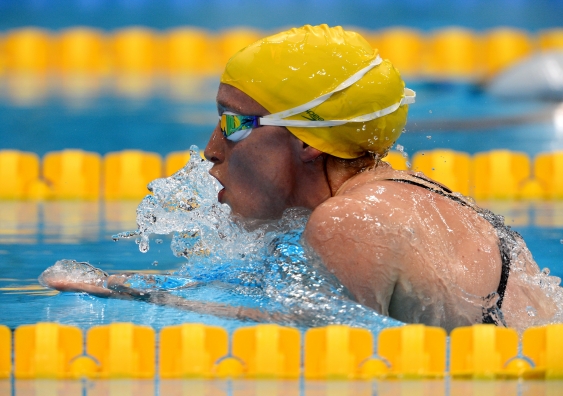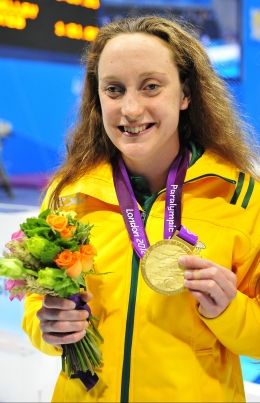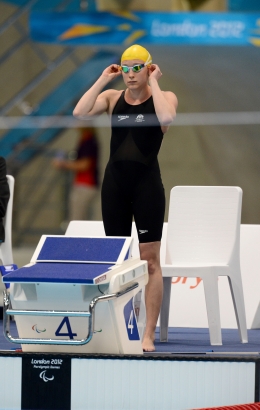Prue Watt goes with the flow to reach Rio
As one of Australia’s most successful Paralympian swimmers, UNSW Ben Lexcen scholar Prue Watt knows what's in store in the lead up to Rio.
As one of Australia’s most successful Paralympian swimmers, UNSW Ben Lexcen scholar Prue Watt knows what's in store in the lead up to Rio.

Prue Watt takes a deep breath as she considers the preparation needed for the Rio Paralympics. As one of Australia’s most successful Paralympian swimmers, she knows what is in store.
“It is always a bit of a daunting time because you know there is so much hard work ahead of you and this is the last chance you get to put yourself in the best position to perform,” the UNSW student says.
Watt won gold in the 100m breaststroke and bronze in the 50m freestyle at the London games in 2012. She also competed in Athens in 2004, where she won five silver medals and one bronze, and in Beijing in 2008, but she is not allowing herself to be overwhelmed by the pressure.

Prue Watt wins gold at the London Paralympics. Photo: supplied.
“My approach is to stay pretty relaxed and not get too worried about what may or may not happen. I would just like to focus on my own performance and enjoy the experience,” she says.
Watt was awarded an Order of Australia medal in 2014 for her Service to Australian Sport. She is a recipient of a UNSW Ben Lexcen sports Scholarship and is part of UNSW’s elite athlete program.
“The elite athlete program has been incredible. They provide a lot of background support and help to create flexibility around university requirements.
“A lot of people don’t quite understand the demands of elite sport and what is happening behind the scenes, not only with training requirements but also the travel. I’m away quite frequently for one or two week blocks.”
The elite athletes program, as well as assisting with support to integrate academic life with sporting success, also provides free access to the UNSW YMCA gym and pool, which Watt says is a great help.
Her training involves seven sessions a week in the pool, as well as two or three weight sessions, so the opportunity to stay on campus for some of her training helps make it easier to attend classes.
My approach is to stay pretty relaxed and not get too worried about what may or may not happen. I would just like to focus on my own performance and enjoy the experience.
Watt is studying a Bachelor of Science at UNSW, majoring in Neuroscience, and says she has always been drawn to subjects related to medical science.
“I’ve always had an interest in neurological diseases and one of the fields I’d like to work in eventually is exercise rehabilitation from neurological conditions,” she says.
Helping others overcome challenges is something Watt is well suited to. Born premature at 24-weeks, she has overcome many challenges, including partial blindness from the oxygen she received as a newborn.
“There are times where it can get a little frustrating. Often people don’t realise that I’m vision impaired,” she says.
Despite this, she has not shied away from taking subjects that are hands-on and practical, such as neuroscience.
“I’ve had to approach some things a little differently from other students. I don’t see it as an impediment though and I really enjoy the challenge. I’ve always been very stubborn in that way,” she says.

Prue Watt prepares to race at the London Paralympics. Photo: supplied.
Following her success in London, Watt took a break from the pool and spent 2013-14 training with the Australian Paralympic Alpine Skiing Team, using skills gained from previous experience.
And while swimming and the Rio Paralympics is her current focus, she has her sights set on a larger goal.
“I’ve always had the dream in the back of my mind to compete at a winter and a summer games because not many people have represented Australia in both,” she says.
The summer Paralympics – a major multi-sport event for athletes with disabilities governed by the International Paralympic Committee – will be held in Rio de Janeiro, Brazil, in September following the summer Olympic Games.
Follow Prue Watt on twitter: @pruewatt